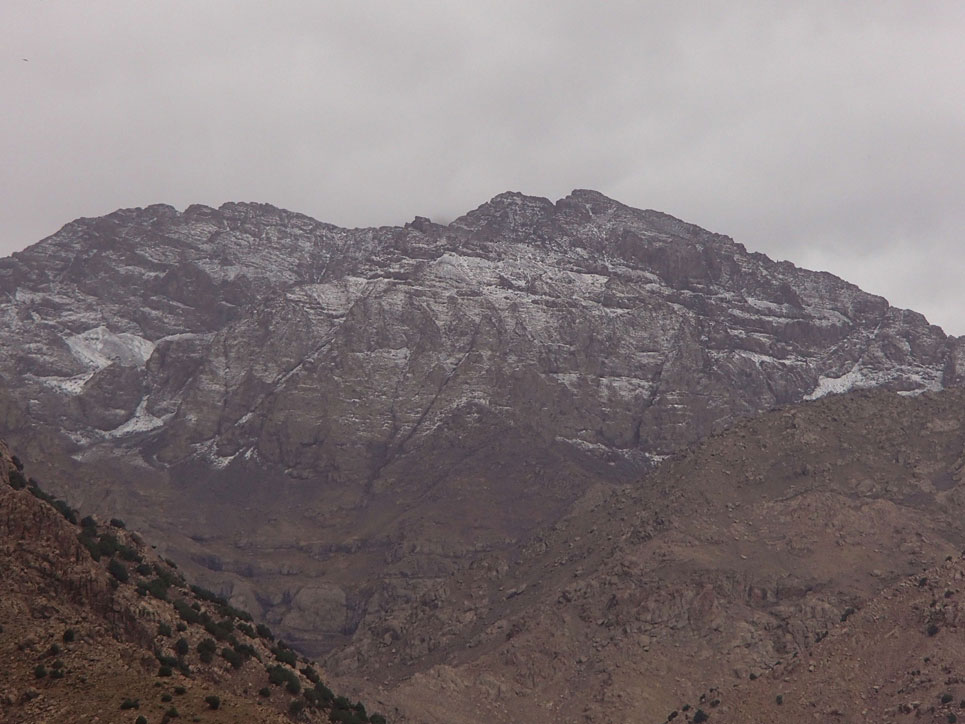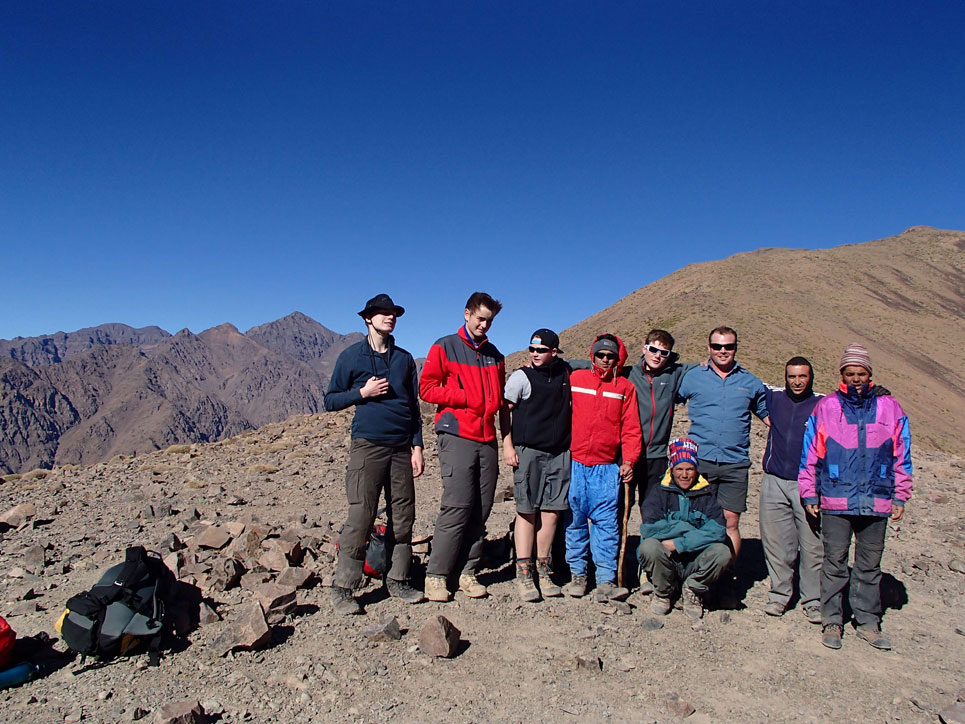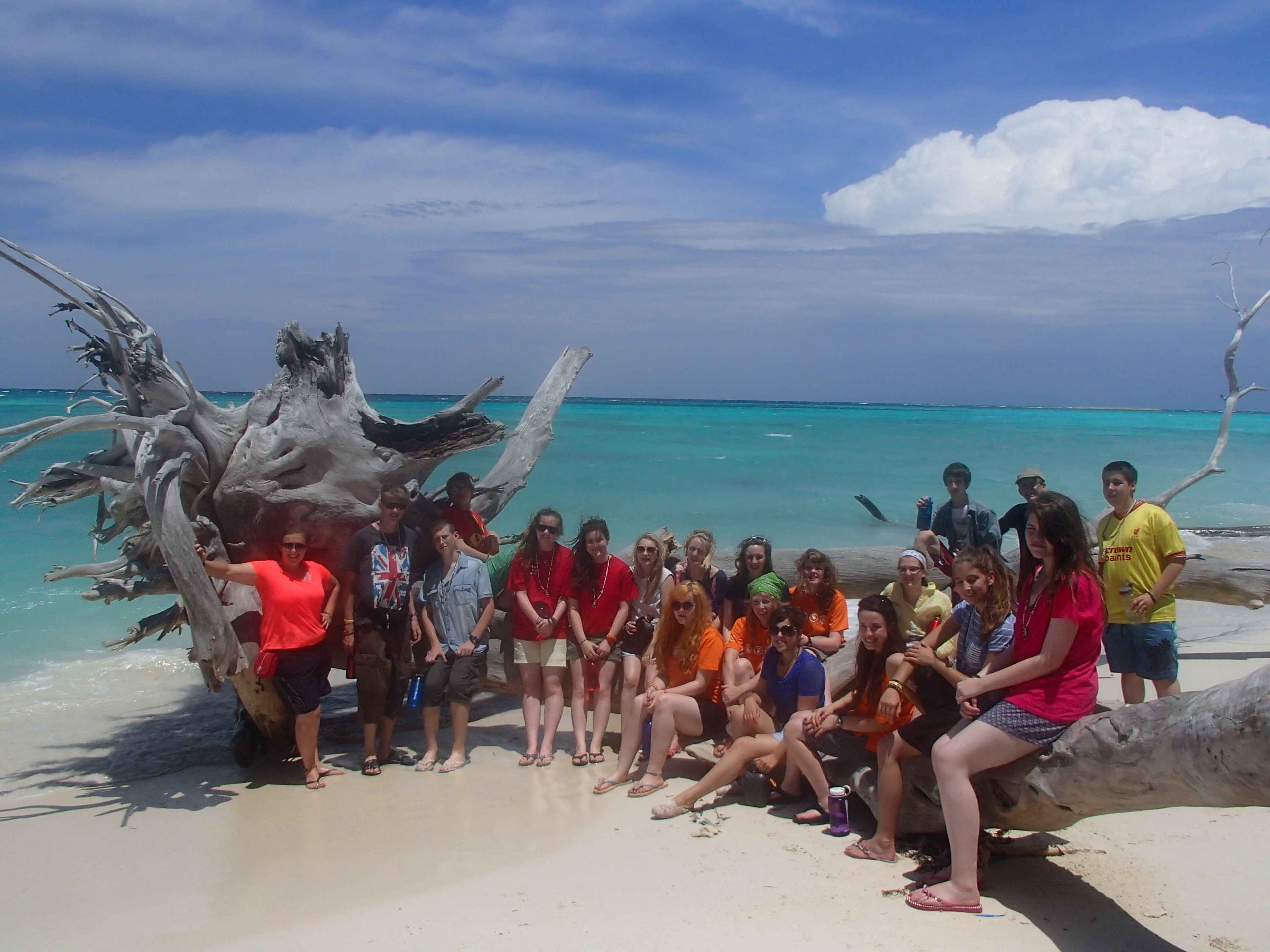We are extremely grateful to Phil Oakley for sending us this inspirational report of his latest venture and for the beautiful images. You can see all the pictures he sent in a gallery beneath the story.
Not content with a challenging trip to Borneo earlier in the year, Bader Grant recipient Phil decided to tackle the summit of Jebel Toubkal in Morocco in October. Our congratulations to Phil on another successful personal challenge – he is an inspiration to us all.
Here is the story of his climb:
TREKKING IN MOROCCO

During October 2013 I was doing my biggest mountain challenge since losing my right foot: To summit Jebel Toubkal in the High Atlas Mountains of Morocco. At 4178 (13,671ft), it was the highest mountain I had attempted as an amputee. When I lost my foot to a very rare type of cancer in 2008, I thought my time in the mountains had come to an end. My surgeon reassured me hill walking would be possible after amputation, but at the time, I did not believe him. I suppose it is natural to be a bit negative when told your foot needs to come off! However, he was right; within five months I was walking up Snowdon. Since then, I have done many mountain routes and rock climbs in the UK and in Scotland – including winter mountaineering.

I went to Morocco with a small group of teenagers from my school and a friend who runs ‘Outdoor Ambition’. We hired a Berber mountain guide – with three mules and muleteers to carry our heavy camping kit. This helps contribute to the local economy as well as getting to know the Berber people and learning more about the area and life in the mountains. It is also a very popular option when trekking in Morocco. Having the mules meant I did not need to carry a heavy rucksack making the trekking a more pleasurable experience (and relieving the pressure on the stump). Jebel Toubkal is a very touristy mountain – on that ‘must do before I die’ bucket list – so most people do it ‘in a day’ rather than spend time in the mountains and appreciating the culture and scenery. Our trip was six days trekking across the mountains before making our ascent of Toubkal. During these six days, we ascended over 6000m, crossed very rocky terrain, ascended and descended very steep slopes with sheer drops. The going was difficult – especially with one foot. The youngsters in our group were certainly challenged, developing their physical and mental stamina, not to forget their appreciation and respect of different cultures and people.

I found the ascents relatively easy: it was the steep descents which caused me the most problems as the foot doesn’t flex for the downhill. I had to take care, as a stumble could have been potentially serious on the rocky slopes; using walking poles certainly helped with stability. Day temperatures were in the mid to high twenties. We would trek for about 5-6 hrs with a leisurely lunch break. Some days we started trekking at 5am to beat the day’s heat. This also meant we got to our camping area by early afternoon, giving us time to relax and wash in the mountain streams. One of the unusual highlights for the youngsters was using mule-dung for the campfire, as wood was difficult.

Trekking in Morocco provides a fantastic option for those of all abilities. With an experienced Berber guide, suitable routes can be selected, days varied. Accommodation can be either camping or in Gîtes. With warm weather and only 3 ½ hours flight, Morocco is a great adventure destination. Moreover, as an amputee, the support of mules with that reassurance of a lift makes trekking more pleasurable.
By Phil Oakley





